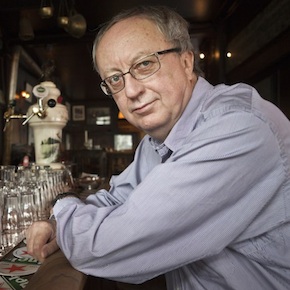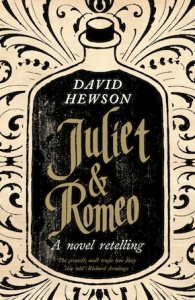A family feud
by David HewsonIt was Monday, July the tenth in the year 1499. A restless moment in a restless world. Rodrigo Borgia reigned as Pope Alexander the Sixth, a pontiff as fond of corruption and debauchery as he was of pomp and ritual. In Florence a brief republic was struggling to emerge from the ruins left by the rule of the apocalyptic priest Savonarola, hanged and burned in front of the Signoria the year before.
The din of war rang over the rival city states of Italy. A mighty French force had invaded Lombardy. To the east an Ottoman fleet of almost a hundred galleons had embarked for the Adriatic from Constantinople to do battle with Venice.
Nowhere did mankind seem still, settled… or in the least incurious. Seven years before, Columbus had discovered a new world for his Spanish masters, turning the eyes of Europe from east to west in search of riches and fresh territory to colonise. Fearful of the coming French, Leonardo Da Vinci had fled Milan for Venice to design new military emplacements that might save the city from the impending Turkish storm. Michelangelo had returned to Florence after Savonarola’s fall and was slowly working on the slab of Carrara marble that would become the statue of David. While in Rome a young cleric named Nicolaus Copernicus spent his evenings stargazing, quietly becoming convinced of the heretical notion that the sun and not the earth lay at the centre of the universe.
The walled city that was Verona, an outpost of the threatened Venetian Republic, possessed a violent enmity of its own, one generated by nothing more than a breed of grape.”
Four hundred years later, hindsight would dub this era the beginning of the Renaissance. But the sweep of history is invisible to those who live through it. For the actors on this restive, panoramic stage there was no name for the state of their particular world, only a shared sense that it stood on the brink of fateful change, as full of peril as it was opportunity.
Tense times without were mirrored by tense times within. The walled city that was Verona, an outpost of the threatened Venetian Republic, possessed a violent enmity of its own, one generated by nothing more than a breed of grape.
Luca Capulet owned the monopoly of production for the variety known as Garganega, grown throughout the flat lands towards Venice. Andrea Montague, maintaining estates to the west, had inherited the licence for the rival Trebbiano vine. So Montague and Capulet had become enemies, bitter ones, when it came to shipping barrels to the great houses that desired them. A vendetta was in place, one so deep-rooted few recalled the argument that had started it nor cared much to question this small war’s origins.
A feud was a feud, one that of late had increasingly brought violence and bloodshed to the streets of fair Verona.
On the other side of Italy, in the corridors of the Signoria in Florence, a thirty-one-year-old clerk named Niccolò Machiavelli was beginning to believe this bold new world required a handbook, a set of rules through which it might be well and ruthlessly governed. It would take another fourteen years for his ideas to emerge with the publication of The Prince. But for those who led this fragile, edgy realm, Machiavelli’s lessons were old news. They’d learned early: a stable state required a tame and subdued populace. Riots, dissent and civil commotion only served to aid the enemy. They were to be put down in every instance, with all the force required.
Then summer came, with all its fiery heat, and met head on the unpredictable, random spirit called human nature.
From Juliet & Romeo (Dome Press, £8.99)
 David Hewson is the author of more than 20 published novels including the Pieter Vos series set in Amsterdam and the Nic Costa books set in Rome. His acclaimed book adaptations of The Killing TV series were published around the world. His audio adaptations of Shakespeare’s Macbeth and Hamlet with A.J. Hartley, narrated by Alan Cumming and Richard Armitage respectively, were both shortlisted for the Audie Awards. A former journalist with the Sunday Times and The Times, he lives in Kent. Juliet & Romeo is out now in paperback and eBook from The Dome Press, and in audio download and CD from Audible (as Romeo and Huliet: A Novel), narrated by Richard Armitage.
David Hewson is the author of more than 20 published novels including the Pieter Vos series set in Amsterdam and the Nic Costa books set in Rome. His acclaimed book adaptations of The Killing TV series were published around the world. His audio adaptations of Shakespeare’s Macbeth and Hamlet with A.J. Hartley, narrated by Alan Cumming and Richard Armitage respectively, were both shortlisted for the Audie Awards. A former journalist with the Sunday Times and The Times, he lives in Kent. Juliet & Romeo is out now in paperback and eBook from The Dome Press, and in audio download and CD from Audible (as Romeo and Huliet: A Novel), narrated by Richard Armitage.
Read more
davidhewson.com
@David_Hewson
Author portrait © Dingena Mol/Crimezone Magazine


